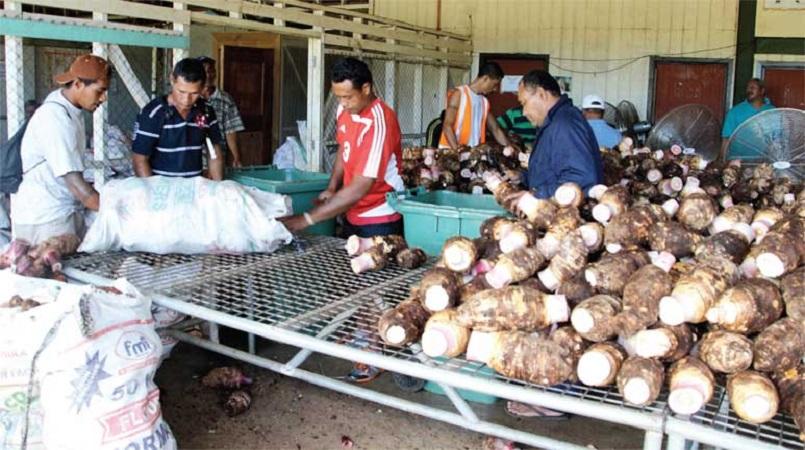
Samoa could resume exporting taro to Australia by the end of the year.
Caretaker Minister of Agriculture Lopao’o Natanielu Mua informed taro farmers that talks between Samoan and Australian officials have progressed considerably.
He reassured farmers that the Ministry of Agriculture and Fisheries is in the final stages of reviewing and finalizing the export pathway for fresh taro with the Australian Department of Agriculture, Water and Environment.
"We are looking at December this year, when the exportation of our fresh taro to Australia will resume again," said Lopao’o according to a Savali newspaper report .
“As you all know, taro is the most common agricultural food crop grown in Samoa. The taro corm is the most popular starch staple in the Samoan diet, while the leaves are used to make the essential traditional vegetable preparation we all know as lu’au or palusami. The corm is now also processed into chips, whiskey and flour,” said Lopaoó.
Local fresh taro are currently exported to New Zealand, America and Hawaii.
The export of fresh taro to Australia was suspended when the Taro Leaf Blight leaf disease affected taro plantations in 2011.
“The Taro Leaf Blight (TLB) is mostly a leaf disease which is capable of totally destroying the canopies of susceptible plants. However, in 2011, the Australian Department of Agriculture, Water and Environment (DAWE) decided that fresh taro posed a high a risk of introducing Phytopthora colocasiae, the fungus that causes TLB, into Australia, and decided that imports should be permitted only from areas declared free of the disease and in this case, requiring official country freedom status.
“We want to change this. We need to do all we can to set up the system that will achieve the official country freedom status to convince Australia that allowing the importation of fresh taro corms from Samoa into Australia will never pose the risk of bringing the TLB fungus into Australia.”
But exporting of taro to Australia comes with the biosecurity protocols according to the Pacific Horticultural and Agricultural Market Access Program (PHAMA Plus) National Facilitator, Asuao Kirifi Pouono.
Asuao said the taro leaf blight destroyed all taro plantations in Samoa within six months.
“In 2012 we received requests from our local taro farmers and industry that they were eager to export our fresh taro to Australia again.
“Exporting our fresh taro to Australia had been long operated and we recorded a top earning from fresh taro in 1989.”
Asuao emphasized that although we are currently exporting frozen taro and produce overseas, including Australia, there has been requests from the industry that include taro farmers and exporters for the reopening of the fresh taro market for export to Australia.
He also said there are conditions that need to be met to allow our fresh taro exportation to Australia.
“Every country has their criteria that Samoa should meet in order to allow our produce exportation to their countries.
“These conditions that need to be carried out here in Samoa for taro corms to be allowed into Australia involve mostly meeting specific biosecurity requirements.
“These are almost finalized and ready,” he said.
Photo file
